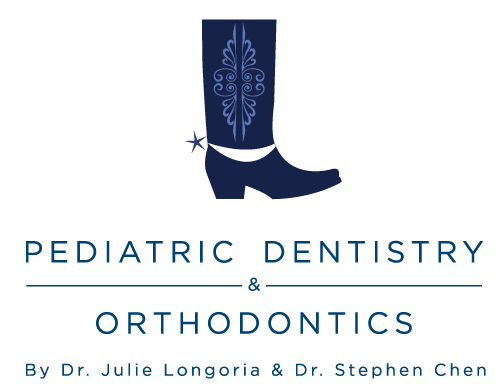 Why are baby teeth so important?
Why are baby teeth so important?
I’m sure you’ve wondered “Why is it so important to take care of my child’s baby teeth? Aren’t they going to just fall out?” Primary teeth, or baby teeth, are an important and essential part of your child’s health and are vital to facial development. Primary teeth also act as space maintainers to assist in guiding secondary teeth, or adult teeth, during eruption. Decay in your child’s primary teeth, may result in misaligned teeth, crowding, and extensive, but necessary orthodontic treatment in their later years.
Can I expect my baby to have any new teeth at this age?
Typically, you can expect the last eruption of baby teeth to occur around 2 years. At that point, most kids won’t see any loose teeth or new teeth erupting until about the age of 6. If your child naturally loses a tooth early, around age 4-5, don’t worry. Sometimes this can happen. We will monitor your child’s tooth eruption progress every 6 months, at your child’s dental checkup and cleaning visit. We are always happy to answer any questions, call us: 713-360-6432.
How can I help my child prevent cavities?
By ages 3-5, children tend to become more independent. Be sure to be mindful of their overall diet, including snacking choices, and their oral hygiene routine. Sticky snacks and fruit juices should not be consumed daily, but if juice is consumed daily, it’s important that consumption is limited, up to two times per day, and best I served with a meal. Your child’s oral hygiene routine should consist of brushing and flossing twice a day. Keep in mind, children cannot brush on their own at this age and will need your assistance until they become older.
I can’t break the thumb sucking and pacifier habit. Is this a problem?
Infants often naturally suck on their thumb and it is normal for them to take liking to a pacifier. However, when your child is older than 2 ½ years old, dental and orthodontic changes can occur as a result of prolonged sucking habits. Some of these changes could be flared teeth, crowded teeth, limited speech problems, cross bites on back teeth, front teeth that don’t touch on biting, and possibly narrow arches. Dr. Longoria, our pediatric dentist, will discuss with you and your child ways to stop these habits as soon as possible.
Is there a way to prevent dental injuries for my child?
Dental injury prevention can be difficult for adventurous children up to age 5. When children jump, climb, and run, they are susceptible to dental injury. Keep an eye on your young children as best as possible. We also advise you to keep our number, 713-360-6432, saved in your phone contacts for easy access in the event of an emergency.

